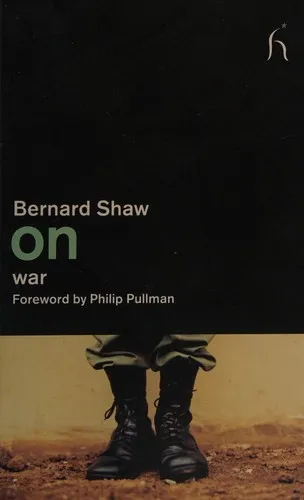Nobel laureate, Oscar winner, and author of more than 50 plays, Bernard Shaw is perhaps as renowned for his political views as for his awe-inspiring artistic output. A brand new selection of his writings on war bring once more to the forefront the polemical work of one of the most outspoken commentators of the early 20th century. As a cofounder of the Fabian society, an equal rights campaigner, and an ardent socialist, Shaw was never known to shy away from controversy, and was accused of treason for the 1914 publication Common Sense About the War, in which he affront patriots and the government alike. His vehemently anti-war stance was almost prophetic in its progressive nature, and holds particular resonance in today's climate of unrest.
George Bernard Shaw
George Bernard Shaw was an Irish playwright, critic, and socialist known for his wit, humor, and social commentary. His most notable works include "Pygmalion," "Man and Superman," and "Saint Joan." Shaw's writing style was characterized by his sharp wit, satirical humor, and exploration of social issues such as class struggle, gender roles, and the role of the individual in society. He was a prominent figure in the literary genre of modern drama, challenging traditional conventions and pushing boundaries in his plays. Shaw's most famous work, "Pygmalion," has been adapted into the popular musical "My Fair Lady." His contributions to literature continue to be celebrated for their enduring relevance and thought-provoking themes.






